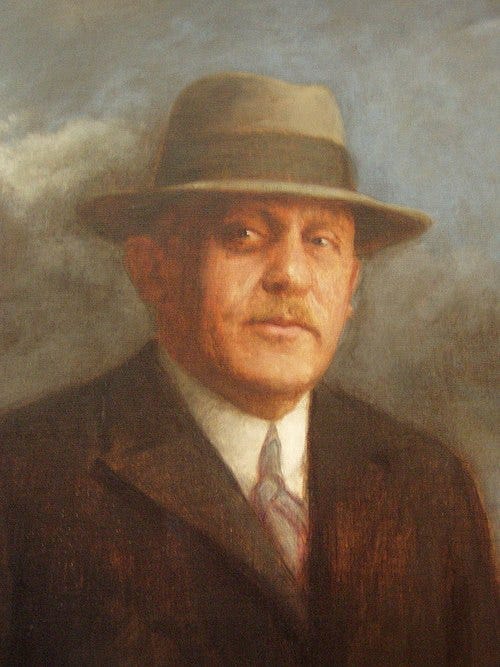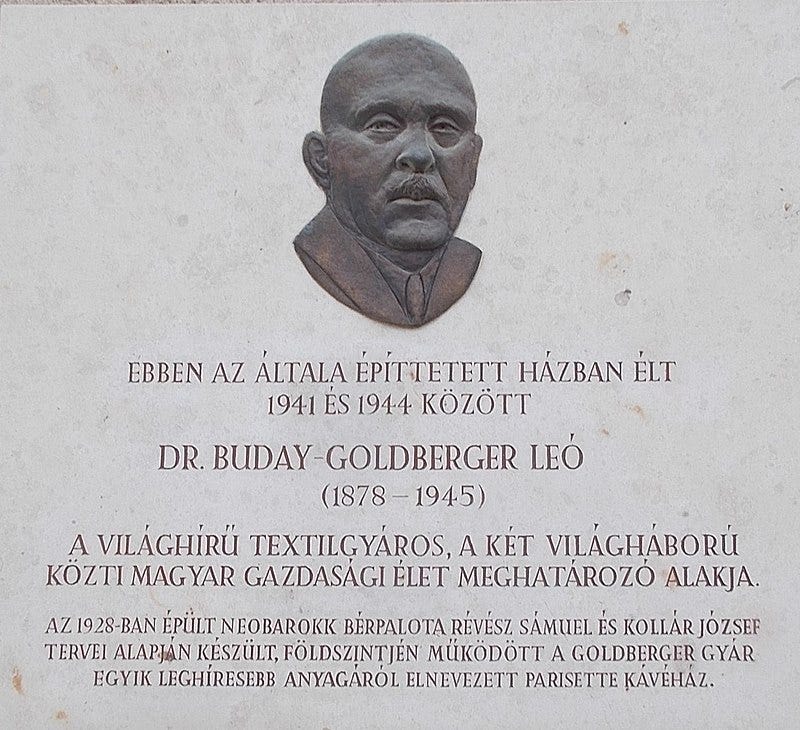Leó Goldberger
Remembering a man I never knew
“Bob, you’ve got to call Peter Jennings!” (Peter was the anchor of ABC News.) That was a message from our PR team, Betty Taylor and Barbara Krause, in California, one afternoon 25 years ago. So I called him. “Bob, I love your new product, GuruNet” (which was the precursor to Answers.com). “Come visit me in New York sometime.”
We had a very friendly lunch on W. 66th St. “You know, my ex-wife discovered recently that she was Jewish, which means, according to your rabbis, that my children are Jews. It turns out they’d like to find out some more about their background, and we’ll be visiting Israel.” And so they did, and Diane and I had the pleasure of hosting them at our Shabbat table and meeting the wonderful Elizabeth, Christopher, and Kayce Freed Jennings, too.
Fast-forward 5 years. My brother Stan recommended a remarkable book called “The Great Escape” about 9 Jews from Budapest who escaped before WWII and literally changed the world. And who wrote it? Kati Marton, Peter’s ex, who escaped Hungary as a girl with her own parents after the 1956 revolution.
She writes about physicists Leo Szilard, Eugene Wigner, Edward Teller; photojournalists André Kertész, Robert Capa; directors Michael Curtiz (“Casablanca”), Alexander Korda (“The Third Man”); writer Arthur Koestler (“Darkness at Noon”); and my favorite, mathematician/physicist John von Neumann, who all but invented both game theory and modern computer architecture. Think about that every time you take the smartphone out of your pocket!
The book is worth it just for the amazing story in Chapter 1 of how the physicists informed Albert Einstein of the possibility of nuclear weapons and the likelihood that the Nazis might win that race [see Einstein-Szilard letter].
Fast forward 20 more years. Diane and I are enjoying a Danube River cruise with dear friends from Budapest to Nuremberg and then Prague, with a focus on Jewish heritage. Since both my parents grew up before the Holocaust in the Carpathian region of what was then Hungary, of course, I’m thinking of them (see video tribute), though the whole trip is much broader than Shoah-based.
We were walking near our Budapest hotel, when I noticed a plaque in one of the squares, commemorating Leó Goldberger, (born 1878), a prominent Hungarian textile industrialist, philanthropist, and art collector…. who did not escape Europe with Kati Marton’s nine.
Goldberger played a pivotal role in the modernization of the textile industry. His influence extended across many industrial and economic institutions: he was head of the National Association of Industrialists, president of the National Association of Hungarian Textile Manufacturers, board member of the Hungarian Institute of Foreign Trade, and a senior adviser to the Hungarian National Bank. In 1935, he was appointed to the Hungarian House of Lords [source].
Everything changed on Sunday morning, March 19, 1944, the day the Nazis took over their “ally”, Hungary. That very first day, Goldberger was arrested by the Gestapo, tortured, and deported to the infamous concentration camp Mauthausen, where he died 412 days later, 80 years ago last week — of starvation — just days after the camp was liberated, one of 90,000 murdered there.
In all, the Nazis exterminated about 565,000 Hungarian Jews, religious and secular, believing and not, for the capital crime of having at least 25% Jewish blood. (Nobody bothered to ask them if they felt Jews were a people or just a religion.)
Here is the plaque we saw at 4 Vörösmarty Tér in Budapest. Maybe it produced perhaps during the Soviet Era?
“Dr. Leo Buday-Goldberger (1878-1945) lived in this house, which he built, between 1941 and 1944. His world-famous textile factory made him a defining figure of Hungarian economic life between the two world wars. The neo-Baroque house, built in 1928, was designed by Sámuel Révész and József Kollár, and the cafe on the ground floor was named for, Parisette, one of the most important materials.”
Hmmm… can you notice anything missing?
Tonight, in the early hours of the morning, our boat will sail past Mauthausen Camp. We will not stop.
TL;DR.
Not everybody is your kind of reasonable. My friend Rabbi David Wolpe said, “The belief that rational self-interest is a governing principle — is a belief common to rational people.”
There are so many variations on the spectrum between total particularism and universalism. Live with it.
Sometimes you have no choice to defend yourself, at least if you desire to keep alive — and can.
Respect, never erase, difference, be it racial or viewpoint.



